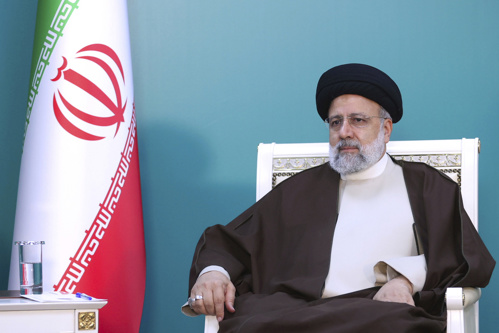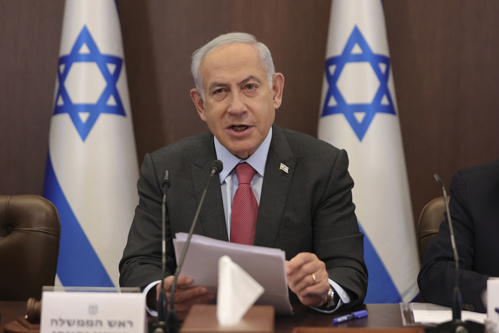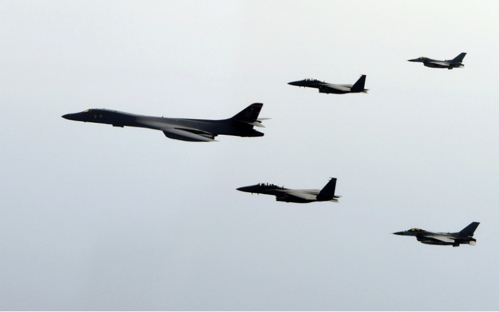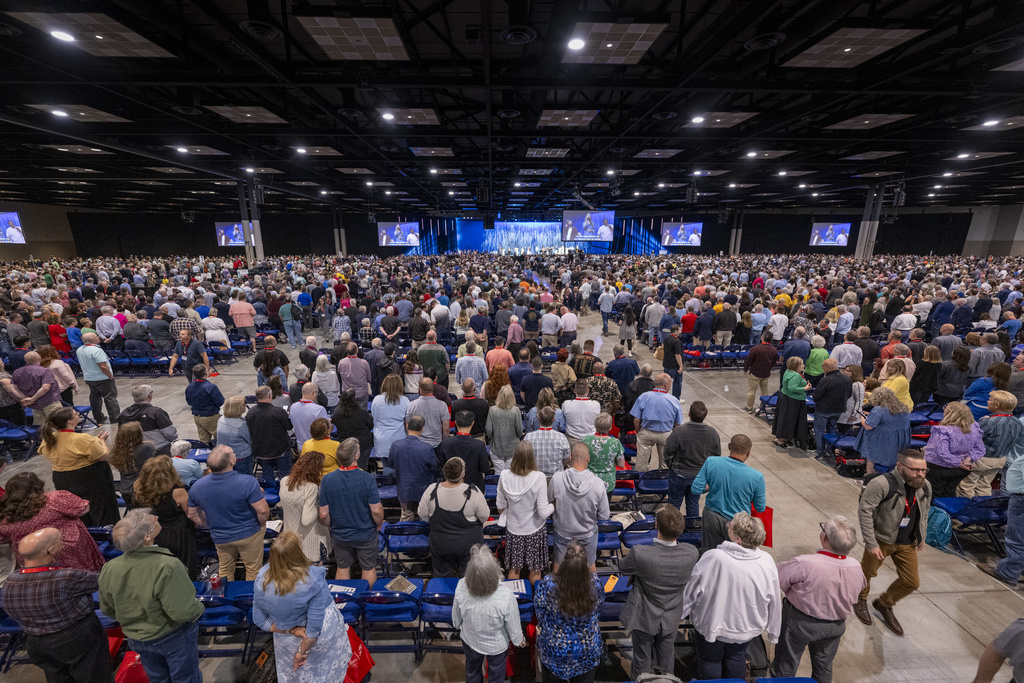The short answer is yes, Pastor Jack Hibbs, of Calvary Chapel in Chino Hills, California, said on Washington Watch Wednesday.
But the short answer, he adds, is not enough. The key to understanding is finding truth in the balance of scripture, Hibbs told show host Tony Perkins.

Many believers in the U.S. tend to think the world revolves around the western part of the globe, Hibbs said, when in fact that isn’t the case.
“We're guilty of looking at it through a western worldview lens, rather than a biblical worldview lens,” he said.
Surely the ongoing conflict falls into Jesus’ vague end-times explanation of “wars and rumors of wars, as any war would,” Hibbs said.
But Israel’s recognition as a nation in 1948 was the fulfillment of Isaiah 66 “and started a prophetic clock ticking.”
Tick, tick, tick goes the prophetic clock
As that clock ticks, America has the best president in place for the times, Blaze Media show host Steve Deace said on American Family Radio Thursday.
What makes Donald Trump uniquely qualified for the moment is not his embrace or understanding of an end times discussion. It’s his transactional approach to governance. Is this good for America, or is it bad? That sets Trump apart, Deace told show host Jenna Ellis.
But the eschatology component to current events is real. Now the eyes of those trying to interpret scripture are focused on Ezekiel 38 which describes a coalition of nations in a battle against Israel.
 Many scholars consider the countries named in that famous chapter this way: Magog as Central Asia or possibly Russia; Meshech and Tubal as parts of Turkey or southern Russia, as Sudan or Ethiopia; Put as Libya or North Africa; Gomer and Beth Togarmah as Turkey and other regions nearby.
Many scholars consider the countries named in that famous chapter this way: Magog as Central Asia or possibly Russia; Meshech and Tubal as parts of Turkey or southern Russia, as Sudan or Ethiopia; Put as Libya or North Africa; Gomer and Beth Togarmah as Turkey and other regions nearby.
And, of course, Persia is Iran.
That coalition seems to be missing at this time. Neither Russia nor China nor Islamic neighbors have risen up to join Iran in the fight.
That part is still to play out, Hibbs said.
“Is this Ezekiel 38? This battle of the coalition of nations that are around Israel, is this it? I believe we are in that stage. I think the players are being put into place.”
So, for those keeping score at home, what’s next?
Israel’s got this, but what is the U.S. role?
Israel will win with or without help, Hibbs says.
The U.S. is a key figure right now, the headlines tell us that. President Donald Trump has criticized Iranian leaders for failing to reach a negotiated peace within the 60-day window he set.
 Wednesday, in a scrum with reporters, President Trump would not go into specifics about possible use of “bunker buster” bombs launched by the U.S. against Iran.
Wednesday, in a scrum with reporters, President Trump would not go into specifics about possible use of “bunker buster” bombs launched by the U.S. against Iran.
Without them, Israel’s effort to destroy the mountain-entrenched Fordow facility, where analysts believe Iran has stored stockpiles enriched uranium on the verge of transforming to weapons-grade, would rely on its own troops on the ground. Fordow is heavily guarded and protected.
“You don’t know what I’m going to do. I may do it, I may not do it. Nobody knows what I’m going to do,” Trump said. “I’ve been asked by everybody but I haven’t made a decision.”
The decision Trump must absolutely avoid, Deace cautioned, is post-war U.S. entanglement with Iran, a majority-Shia Islam population.
“That country is -- especially in that country -- it is 95 percent Shia. They’ve lost their central bank. They've lost Internet. They've lost power. The worldview of that country is wrecked. Shia Islam is a bridge to the abyss,” Deace said.
 While Trump remains coy, Hibbs believes good things are in store for the people of Iran, many of them cheering the Israeli attacks and hoping for the downfall of an oppressive Islamic regime.
While Trump remains coy, Hibbs believes good things are in store for the people of Iran, many of them cheering the Israeli attacks and hoping for the downfall of an oppressive Islamic regime.
“There's going to be a massive explosion of salvation and an awakening of those in Persia who have been flirting with the Gospel for a long time. Many of them have become believers,” he said.
Another important takeaway from Ezekiel 38 is confidence and self-assuredness from Israel, Hibbs said.
“Ezekiel 38 says that before the battle, Israel is dwelling in peace, they’re prosperous, and they have loosened the grip on the walls. It says the walls have become unprotected. They’re peaceful, and I think we’re seeing this set up,” Hibbs said.
“This will bring in later, we don’t know when, maybe six months, maybe six years, where Iran retaliates by having this coalition of Islamic nations against Israel. It’s all there in Ezekiel 38.”
 The Middle East peace to come at the completion of current hostilities will open the door for a key mile marker in the end times discussion, the rebuilding of the temple in Jerusalem, Hibbs said.
The Middle East peace to come at the completion of current hostilities will open the door for a key mile marker in the end times discussion, the rebuilding of the temple in Jerusalem, Hibbs said.
Solomon’s temple, the first, was destroyed by the Babylonians in 586 BC. The second temple, rebuilt after the Babylonian exile, was destroyed by the Romans in 70 AD.
Today, Temple Mount in Jerusalem is home to the Western Wall, a surviving part of the second temple complex. It is the site of Jewish prayer and mourning and also home to the Dome of the Rock and Al-Aqsa Mosque, two of the holiest sites in Islam.
Many end-times interpretations say a third temple must be built before certain events unfold. Preparations are under way by some groups to build the third temple.
Trump has to maintain ‘America First’ approach
But Trump needs to remain Trump, Deace says.
“Even though Trump's pragmatism has frustrated me at times over the last decade, this is a time right now, by God's grace and his sovereignty, we have the right president. We need cold-hearted pragmatism.”

And, Deace says, that means considering the consequences of the present, not establishing policy based on eschatology when Christians who believe in mankind’s final result have widely varied views on the path that leads us there.
“Right now, we just need somebody who's only thing is, does it win? What we need right now is a president who has the resolve to say, is this serving our interests? Yes, keep doing it. Is it not? Cut bait. Stop it.”







